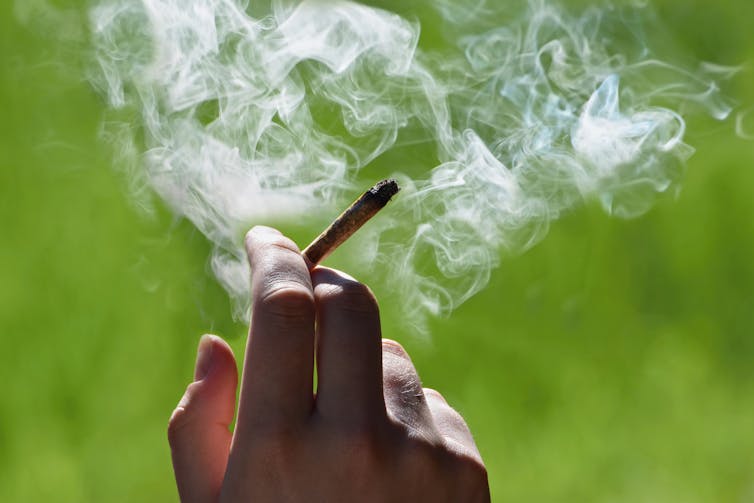We’ve all listened to of anyone referred to as getting an “addictive personality”. Some even say it about by themselves. But you may be shocked to know there is no these types of factor.
In spite of decades of analysis, no-one particular has been equipped to determine a dependable set of temperament characteristics or a single persona type that can reliably predict no matter if somebody will have problems with alcoholic beverages or other medication.
The development of alcoholic beverages or other drug complications is a complicated and hard-to-forecast mix of components. The “addictive personality” is, in essence, just a stereotype.
Read additional:
Liquor problems usually are not for life, and AA isn’t the only selection. 8 items movie and Television get completely wrong about drug and alcoholic beverages remedy
In which did the plan of an addictive character arrive from?
Practically 90 yrs in the past, close to the time of the birth of the Twelve Stage movement and Alcoholics Nameless, there was a go away from pondering about liquor challenges as a ethical failing and to having a extra healthcare technique.
The first step in this transition, based mostly on the fairly minor that was known about liquor and other drug challenges in the 1930s, was viewing these complications as a persona flaw. It was the best explanation at the time of why some folks develop problems with alcohol and other people never.
Later all those tips even further formulated into a broader “disease model”. The condition product and the later “brain disease” design viewed liquor and other drug problems as a lifelong and incurable disease of the head, generating abstinence the only alternative.

Shutterstock
Why is the thought of an addictive temperament a challenge?
The phrase “addictive personality” generally conjures up negative illustrations or photos: weak, unreliable, selfish, impulsive, lacking command. It is a stereotype that increases stigma about liquor and other drug troubles and reinforces the idea alter is tough or extremely hard. And stigma stops folks from trying to get aid when they want it.
The addictive character strategy can also lead persons to feel they are possibly destined for troubles, or completely guarded from them, neither of which is true. For individuals who do experience issues, they may possibly have a feeling of helplessness about managing their use.
It is a shorthand way of indicating, “I can not do something about it”.
Study much more:
Does Alcoholics Anonymous really function?
Is there any truth of the matter to the addictive identity notion?
We now know some men and women who have difficulties with alcohol or other medicine can return to common use. And most folks practical experience challenges with only a single drug, using other drugs in non-problematic techniques. Both equally of these things contradict the addictive persona theory simply because they recommend there is a stage of command.
But there are some characteristics that are more most likely to be identified in people today who have issues with alcohol or other medicines.
There are two major persona clusters that appear to be to raise risk of challenges: danger-getting or impulsiveness, and sad or nervous temperaments. Or a mix of equally. Both equally danger takers and superior achievers are additional probable to build liquor or drug troubles.
The typical thread to these seemingly unrelated characteristics is problem regulating emotions.

Shutterstock
This partly points out why persons who have expert trauma have a increased risk of establishing alcoholic beverages or other drug challenges, and why there are greater charges of dependence amid people today with ADHD. Both equally these problems maximize activity in the limbic technique, the portion of the mind responsible for emotional reactions, and decrease exercise in sections of the prefrontal cortex, the reasonable component of the mind that will help regulate psychological responses.
There is some genetic component to individuality – among 30{2c3a8711102f73ee058d83c6a8025dc7f37722aad075054eaafcf582b93871a0} and 60{2c3a8711102f73ee058d83c6a8025dc7f37722aad075054eaafcf582b93871a0}. And there is also some genetic element to the improvement of alcohol or other drug troubles – 45{2c3a8711102f73ee058d83c6a8025dc7f37722aad075054eaafcf582b93871a0}-65{2c3a8711102f73ee058d83c6a8025dc7f37722aad075054eaafcf582b93871a0} for liquor. But inherited temperament features are a final result of a lot more than 700 doable gene interactions and there is no one “personality gene” that qualified prospects to alcohol or other drug issues.
A improved rationalization
We now know the progress of alcohol and other drug troubles is motivated by a amount of components.
Numerous US troops in Vietnam in the 1970s designed a dependence on heroin and used it frequently even though they ended up in Vietnam, but they stopped immediately when they returned household. So it is not just the drug alone or the human being working with it, but also the place it’s being utilised.
Some drug specialists refer to this as “drug, set and setting”: the characteristics of drug alone, unique qualities, and the context in which the drugs are made use of.
But how do these combined aspects direct to problematic drug use and dependence?
Right after lots of decades of behavioural and neuroscience exploration we now know the brain is quite plastic and continues to understand and shape itself with new activities right in the course of our lives.
Browse much more:
Hoping to lower back again on alcoholic beverages? This is what is effective
Here’s how it will work: any time we do some thing pleasurable, we get a little burst of dopamine in the mind. The dopamine makes us experience very good and claims to our brain “you must try that once again sometime”.
Liquor and other medication release a good deal of dopamine. Some drugs launch much more than other folks.
Our brains rapidly hook up the dots involving motion (taking the drug) and reward (sensation good). That pathway is strengthened every single time the drug is used. If we add sturdy feelings like intensive pleasure or aid then the relationship will get even more powerful. This is known as operant conditioning. The a lot more you use, the a lot more people associations are likely to variety. Some people’s brains the natural way release extra dopamine than others so their pathways are fashioned a lot quicker and much better.
Our mind also notices cues in the ecosystem that become signals for drug use and can bring about a need or craving to use. If you use the very same distinctive glass just about every time you have a drink or sit in the very same chair just about every time you smoke a joint, the brain notices that link. So when you see that glass or sit in that chair you might truly feel a little urge to use even when there is no drug. This is referred to as Pavlovian conditioning.
So relatively than a set persona trait, the determination to use alcoholic beverages or other medications is driven mainly by our mind understanding associations concerning the outcomes of a drug (drug), our person response to the drug (established) and the natural environment in which the drug is utilised (location).
It is great news because what is learnt can be unlearnt. And it suggests liquor and other drug use and difficulties are not unavoidable, even if you have a genetic or temperament predisposition.
If you are nervous about your own or another person else’s alcoholic beverages or other drug use, you can contact the Countrywide Alcoholic beverages and other Drug Hotline on 1800 250 015 for no cost, private guidance.






